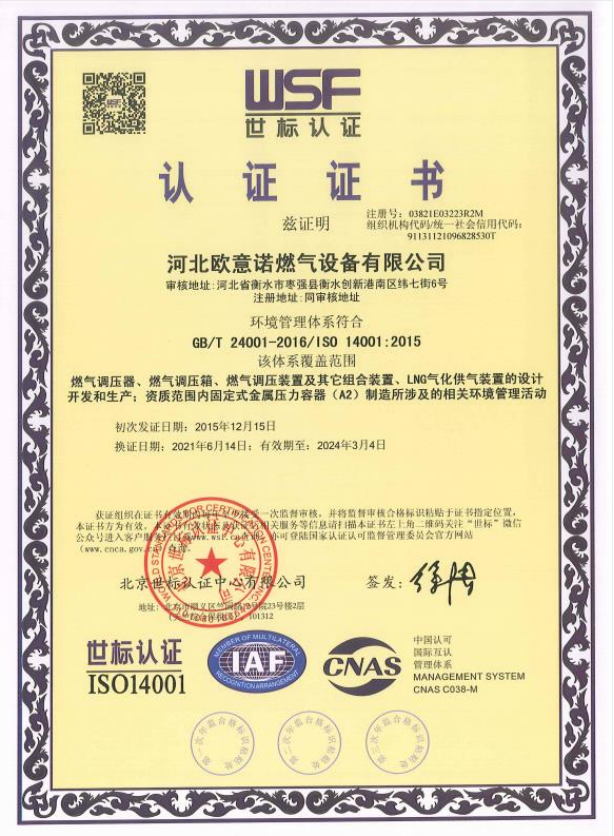
Aug . 16, 2024 18:03
Back to list
Safety Valve Mechanisms and Their Critical Role in Industrial Systems
The Importance of Safety Valves A Critical Component in Industrial Applications
Safety valves play a crucial role in various industries by ensuring the safe operation of pressurized systems. These devices are designed to automatically release excessive pressure from a boiler, pressure vessel, or piping system, thus preventing potential explosions or catastrophic failures. Understanding the significance of safety valves is essential not only for engineers and operators but also for anyone involved in the design, maintenance, and operation of pressurized systems.
Understanding Safety Valves
At its core, a safety valve is a mechanical device that opens to release pressure when it exceeds a predetermined limit. This fundamental principle is crucial for maintaining the integrity of vessels that are under pressure. Safety valves are commonly found in steam boilers, natural gas systems, chemical processing plants, and many other applications where pressurized gases or liquids pose a risk.
The working mechanism of a safety valve is relatively simple. When the pressure inside the vessel exceeds the set pressure, the valve opens, allowing the excess pressure to escape. Once the pressure drops to a safe level, the valve automatically closes. This self-regulating feature ensures that the system remains safe without the need for constant manual monitoring.
Types of Safety Valves
.
1. Spring-loaded Safety Valves These are the most common type. They utilize a spring mechanism to hold the valve closed until the pressure exceeds the set limit. When the limit is breached, the force of the pressure overcomes the spring tension, causing the valve to open.
صمام الأمان

2. Pilot-operated Safety Valves These valves use a smaller pilot valve to control a larger main valve. They are particularly suited for high-pressure applications where more precise control of pressure release is required.
3. Vacuum Relief Valves These valves are designed to prevent vacuum conditions that can lead to collapse of storage tanks or other vessels.
The Importance of Maintenance
Regular maintenance of safety valves is critical to ensure their reliability. It's imperative that operators routinely test and inspect these devices to ensure they function correctly. Over time, factors such as corrosion, material fatigue, and debris accumulation can affect the performance of safety valves. The consequences of a malfunctioning safety valve can be catastrophic, leading to equipment damage, injury, or loss of life.
Regulatory Compliance
In many industries, safety valves are not just a recommendation; they are mandated by industry regulations and standards. Regulatory bodies often require that safety valves are installed, tested, and maintained according to specific guidelines. Compliance with these regulations is vital for ensuring the safety of employees and the environment, and failure to comply can result in severe penalties for companies.
Conclusion
In summary, safety valves are an essential component of any pressurized system, providing a critical line of defense against overpressure scenarios. Understanding their function, types, and the importance of regular maintenance can significantly contribute to overall safety in the workplace. As industrial processes become increasingly complex, the role of safety valves will only become more vital in mitigating risks and ensuring operational integrity. By prioritizing the proper management of these devices, industries can protect both their assets and their workforce.
Latest news
-
Safety Valve Spring-Loaded Design Overpressure ProtectionNewsJul.25,2025
-
Precision Voltage Regulator AC5 Accuracy Grade PerformanceNewsJul.25,2025
-
Natural Gas Pressure Regulating Skid Industrial Pipeline ApplicationsNewsJul.25,2025
-
Natural Gas Filter Stainless Steel Mesh Element DesignNewsJul.25,2025
-
Gas Pressure Regulator Valve Direct-Acting Spring-Loaded DesignNewsJul.25,2025
-
Decompression Equipment Multi-Stage Heat Exchange System DesignNewsJul.25,2025

